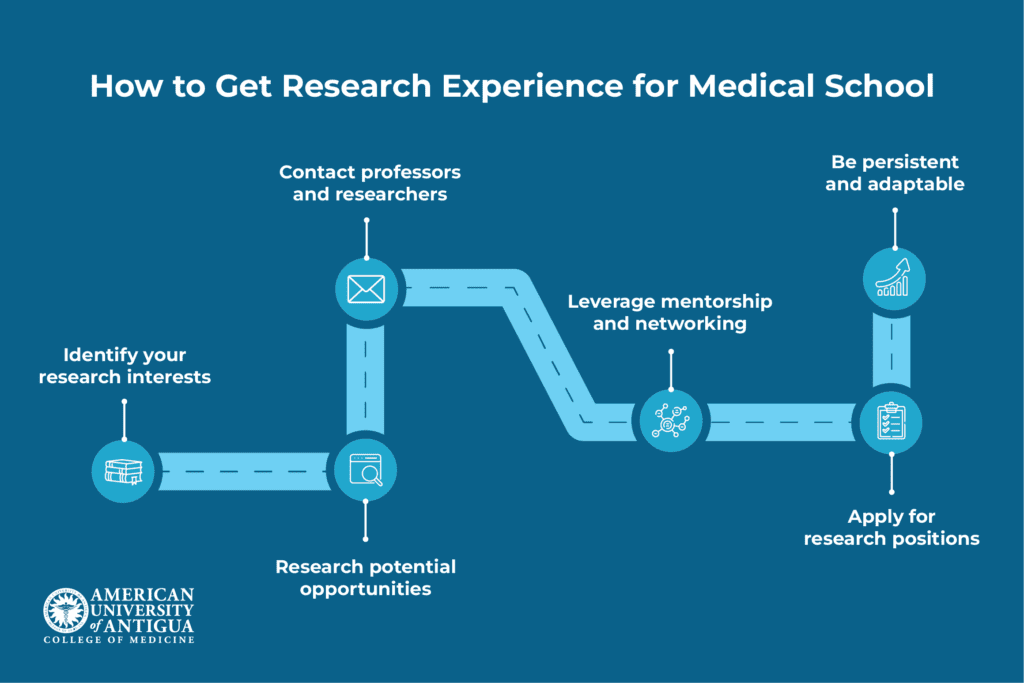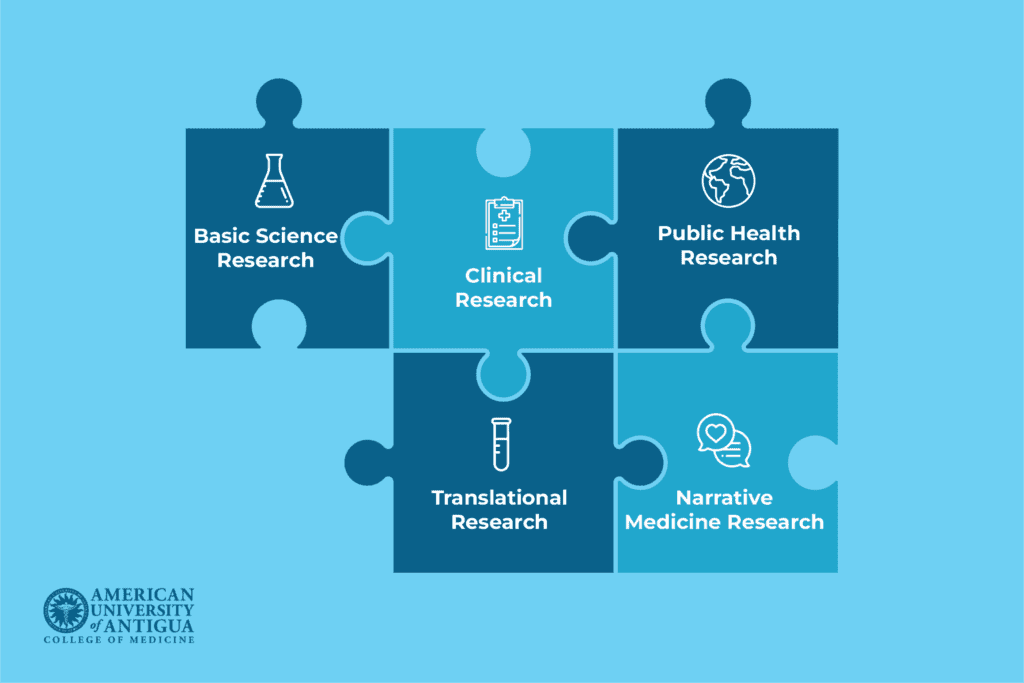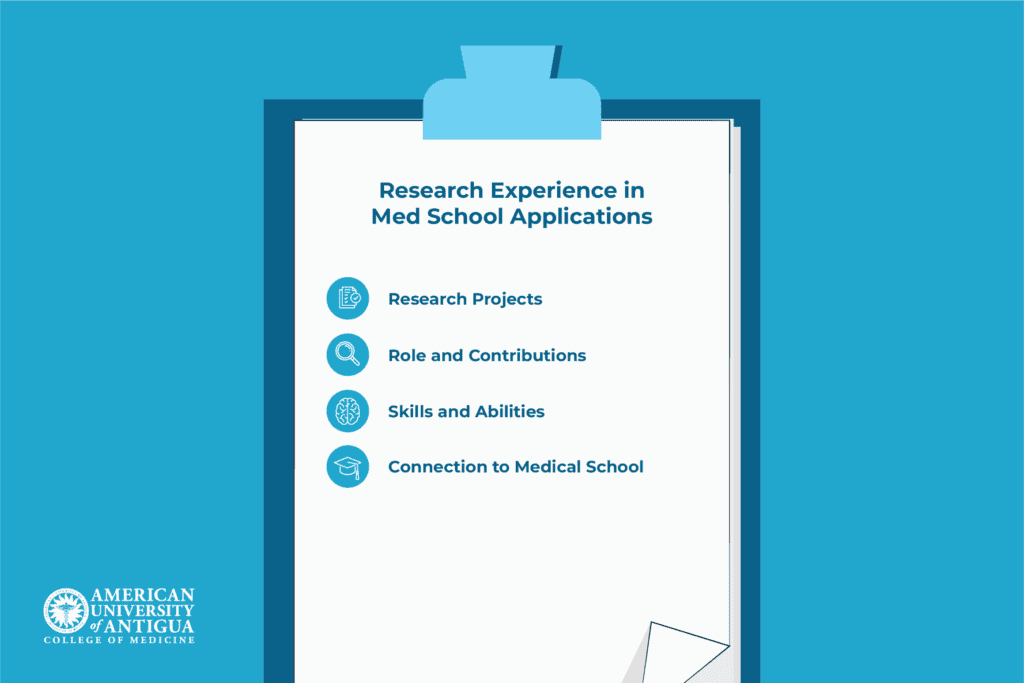How to Get Research Experience for Med School: Key Steps
Key Takeaways
- Research experience strengthens your application: It demonstrates to medical schools that you possess critical thinking and problem-solving skills, which are crucial for a career in medicine.
- Start early: Getting research experience in college broadens your understanding of medicine and helps in the development of critical thinking skills.
- Explore different types of research: All forms of research, including clinical, public health, and basic science, offer valuable learning experiences that can support your goals.
- Network and stay persistent: To find opportunities and learn from others in the field, you should attend relevant events and build relationships with mentors and instructors.
One of the most important aspects of being ready for medical school is getting research experience. This experience enhances your application and promotes the development of skills like problem-solving, critical thinking, and practical scientific understanding.
Getting involved in research helps you learn more about medicine, from how diseases work to new treatments. Admission committees look for students who are dedicated to advancing medicine, and research shows that commitment.
✅ Request information on AUA's MD program TODAY!
In this guide, we’ll walk you through the key steps to gaining meaningful research experience, from identifying your interests to applying for positions and making the most of mentorship opportunities.
How to Get Research Experience for Medical School

Obtaining research experience is an essential part of a strong medical school application. It demonstrates your ability to think critically, analyze data, and make scientific discoveries. Medical schools look for applicants who are curious and willing to explore new theories through study.
Thankfully, there are simple methods for determining the right opportunities. In the following sections, we’ll discuss how to get started, connect with the right people, and make the most of your research experience.
Identify your research interests
Before starting research, it’s important to choose a topic that interests you and supports your future career goals. Medical research covers a wide range of subjects, including genetics, brain science, public health, and clinical studies. You can discover which of these areas you like best by exploring them.
Some students enjoy working in labs where they analyze substances in biochemistry or study microscopic organisms in microbiology. Other students opt for research with real patients and clinical studies examining how diseases work and how treatments can help. You may also look into pharmacology, which studies how drugs function; epidemiology, which studies how diseases spread; and how technology is influencing healthcare in the future.
Research potential opportunities
Once you have chosen a study topic that interests you, the next step is to find the best opportunity. Start by searching for research programs provided by medical schools, research centers, colleges, and universities.
There are numerous projects where students can assist with important research. You can visit their websites, read about the professors’ research, and look for programs or internships that accept students.
You can also look for research opportunities on websites such as ResearchGate, LinkedIn, and university job boards. Another excellent option to connect with researchers who might be looking for students to join their teams is to attend events such as medical seminars or academic conferences.
Contact professors and researchers
Students can gain valuable research skills and practical experience from professors and researchers. They can provide you with advice and the opportunity to collaborate on interesting projects. Before contacting a professor, familiarize yourself with their work by reading about their study.
After that, send a polite email introducing yourself, expressing your interest in their work, and outlining your learning objectives. Clearly state your objectives and provide any relevant coursework or skills. Don’t be alarmed if you do not receive a response immediately; professors are often quite busy. Try to follow up after a week or two.
Leverage mentorship and networking
Mentors, advisors, and former students can help you find research opportunities. They can give advice, share their experiences, and introduce you to researchers looking for students to join their projects.
One great way to meet these people is to attend conferences, seminars, and workshops related to your line of work. At these events, you can learn about new research, meet experts, and find mentors who can support you. Networking is essential because a lot of research posts are shared through personal connections rather than being publicly promoted.
Apply for research positions
If you want to increase your chances of getting hired for a research position, you must carefully read the application requirements. First, read the job description to learn what is required of you. Next, make sure your cover letter explains why you are applying for the job and shows your qualifications.
Ensure that your resume or CV’s experience and credentials relate to the position. Follow all instructions and submit the necessary documents. Last but not least, make sure to double-check the deadlines because missing them could cost you the opportunity.
Be persistent and adaptable
It’s important to keep trying if your applications don’t work out at first. Not every opportunity will be the right one, but that doesn’t mean you should give up. Be willing to consider various options even if a specific research topic isn’t what you had in mind.
Sometimes, these opportunities lead to amazing experiences. Try to learn from the rejection and make the most of it next time. Stay positive by focusing on the things you can control, like developing new skills, expanding your knowledge, and making new friends.
Where to Find Research Opportunities as a Pre-Med Student
Opportunities for research are abundant for pre-med students. Medical schools, hospitals, and local research centers are excellent choices since they frequently provide programs that allow students to assist with research projects in labs or clinics. These locations will enable you to collaborate with seasoned researchers and help with data collecting and analysis.
Additionally, researchers post job openings on websites like ResearchGate and LinkedIn. For pre-med students, numerous organizations provide unique research opportunities, like fellowships or summer internships. Another excellent resource for research opportunities is the career center at your university, which frequently posts job openings for medical research-related internships and volunteer roles.
Types of Research Experience for Medical School

Medical research comes in many forms, giving pre-med students a variety of options to choose from. You can work on basic science research, clinical studies, public health projects, or translational research, which connects lab discoveries to real-world treatments.
Another option is narrative medicine research, which looks at the personal side of healthcare. Each type of research offers a different way to learn and grow in the field of medicine. In the following sections, we will go over these different types of research experiences in more detail so you can figure out which one fits your interests and goals.
Basic science research
Basic science research is all about understanding the basic ideas of biology, chemistry, and physics and how they apply to living organisms. Research of this nature is vital because it teaches us the basics of how the body works, which is necessary for creating new treatments and advancing medical science.
Usually, basic science research is conducted in laboratories to study genetic modifications, the impact of drugs on microorganisms, and cell function. These studies improve our understanding of diseases and general health and serve as the foundation for many medical breakthroughs.
Clinical research
Clinical research focuses on studying how medical treatments, procedures, and therapies work in real-world situations with human participants. It includes data on how patients respond to treatments, medications, or interventions and whether they are effective and safe.
This type of research is important because it helps us determine the best ways to treat diseases, improve patient care, and develop new medical technologies. Clinical research is essential for advancing medicine, as it provides the evidence needed to approve new treatments and ensures they are safe for public use.
Public health research
Public health research studies how different factors affect the health of communities and populations rather than just individual patients. It focuses on areas like disease prevention, health habits, environmental influences, and the impact of healthcare policies. This type of research is essential because it helps us understand patterns and trends that can improve the health of entire populations.
Public health research is valuable in the medical field because it provides important information that helps shape health policies, improve healthcare systems, and create better strategies to prevent diseases.
Translational research
Translational research focuses on turning discoveries made in the lab into real treatments that help patients. It is important because it connects basic science research with actual medical practice, making sure that new findings lead to better care for people.
This type of research helps speed the development of new treatments, therapies, and medical tools. By applying what we learn in the lab to real-life situations, translational research helps create new ways to treat diseases and improve existing treatments.
Narrative medicine research
Narrative medicine research focuses on the role of stories and personal experiences in healthcare. It looks at how listening to patients’ stories, feelings, and perspectives can impact their care and treatment. This research is crucial because it helps doctors understand patients better, not just as cases but as people with unique experiences.
By improving communication and empathy, narrative medicine research helps build stronger relationships between doctors and patients, which leads to better trust and health outcomes. It encourages doctors to consider both the medical and emotional needs of patients when providing care.
When Should You Start Gaining Research Experience?
The best time to start gaining research experience is as early as possible, ideally during your undergraduate years. Starting early helps build a strong foundation in important skills like critical thinking, data analysis, and problem-solving. Early exposure also allows you to explore different areas of medical research, helping you discover which fields interest you the most.
Gaining research experience deepens your understanding of medical science by allowing you to apply what you’ve learned in the classroom to real-world research. This experience not only enhances your medical school application but also prepares you for future opportunities in research and healthcare centers.
How to Highlight Research Experience in Medical School Applications

To make your research experience stand out in medical school applications, it’s important to clearly describe your projects and the role you played in them. Be specific about your contributions, such as conducting experiments, analyzing data, or writing research papers. Explain the goals of the research and any significant findings or results.
Additionally, highlight the skills you gained, such as critical thinking, problem-solving, teamwork, and scientific communication, and connect them to how they will help you succeed in medical school and as a future physician.
Conclusion
Gaining research experience is an important step in strengthening your medical school application. It helps you develop critical skills like problem-solving and critical thinking, which are essential for success in the medical field.
By exploring different areas of research, such as clinical studies, pharmacology, or public health, you can find what excites you most and build valuable experience. Starting early and being proactive in seeking out opportunities will give you a competitive edge when applying to medical schools.
Discover the opportunities AUAMED offers to help you take the next step in your medical career!
Frequently Asked Questions (FAQs):
Can you get into med school with no research experience?
While research experience strengthens your application, it’s possible to get into med school without it, but it may be more competitive.
How many hours of clinical experience for med school?
Most medical schools recommend at least 100-200 hours of clinical experience, but this can vary by program.
What are some research topics for undergraduate students in medical school?
Undergraduate students can explore topics like microbiology, epidemiology, genetics, pharmacology, or clinical studies on diseases and treatments.
✅ Request information on AUA's MD program TODAY!